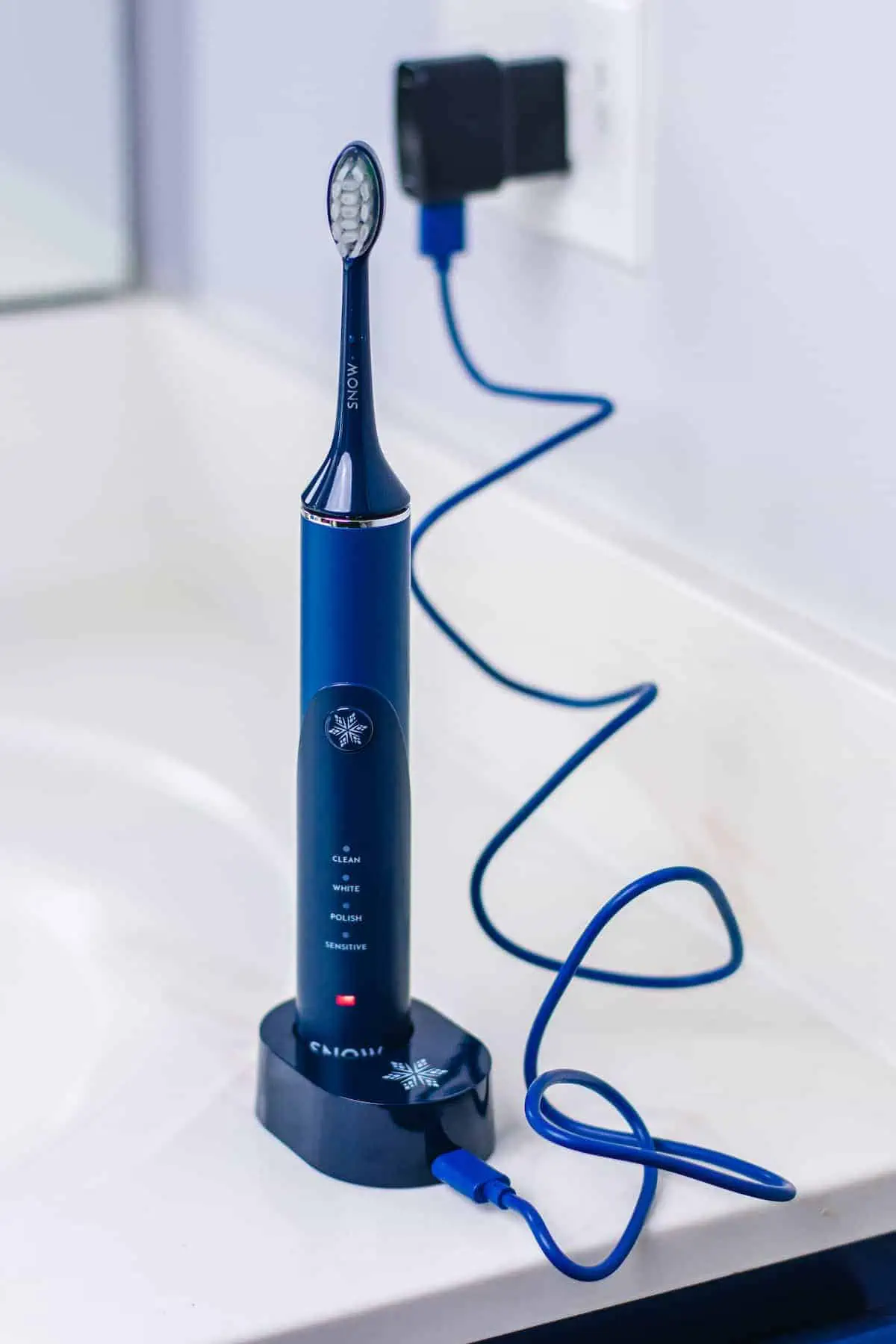Teeth whitening is big business in the UK, and a vast array of solutions are now available – from state-of-the-art laser treatment to home whitening kits.
But, this huge amount of choice can be pretty overwhelming, especially if you’re looking at how to whiten your teeth for the first time. To make matters worse, some of the products and cosmetic dental treatments you see advertised online are ineffective or even unsafe.
In this guide to UK teeth whitening methods and products, we’ll talk you through the many different options when it comes to getting a whiter smile, and answer the following questions:
- What is the best way to whiten teeth?
- Why do teeth become discoloured?
- What are the best teeth whitening treatments in the UK?
- Are teeth whitening kits any good?
- Is teeth whitening safe?
- How much does teeth whitening cost?
So, if you have ever looked at yourself in the mirror and wished your smile was a bit brighter, then keep reading to find the best tooth whitening option for you.
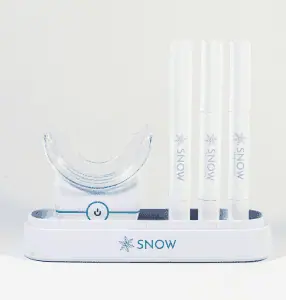
- Our #1 Teeth Whitening Kit
- Snow offers lasting results in just 9 minutes a day and satisfaction guaranteed or your money back.
- Fast Results: Noticeably whiter teeth after just one use, with full results in 21 days.
- Safe for Sensitive Teeth: Designed to be pain-free, even for those with sensitivity.
- Easy to Use: A convenient and straightforward application process.
- Celebrity Endorsed: Trusted and used by celebrities for a brighter smile.
In This Article
- 1 What are the best teeth whitening treatments in the UK?
- 2 Home teeth whitening kits
- 3 Peroxide teeth whitening at the dentist
- 4 Other home whitening solutions
- 5 Ways to whiten teeth naturally
- 6 Whitening sensitive teeth
- 7 Tips for keeping your teeth white after treatment
- 8 Is teeth whitening safe?
- 9 Checking teeth whitening reviews
- 10 Conclusion
- 11 FAQs
What are the best teeth whitening treatments in the UK?
The best teeth whitening treatment for you will depend on how much you have to spend, how quickly you want to see results, how permanent you want it to be, and how sensitive your teeth are.
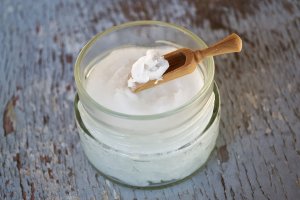
There are many tried and tested ways to whiten teeth these days, including:
- gels
- strips
- trays
- bleach
- lasers
- toothpaste
- coconut oil
- charcoal
Confused? Don’t worry, all will become clear.
Note that all the whitening techniques we cover here will only work on your natural teeth; any dentures, fillings, veneers or implants will remain the same colour.
The following video discusses some of the best ways to whiten teeth and the pros and cons of each:
We have compiled our favourites when it comes to the best whitening treatments in the UK. But, as we have already established, the treatments that will work best for you will depend on several personal factors. These factors include:
- Your budget
- The current condition of your teeth
- How many shades of whitening you want to achieve
- Whether you want whiter teeth instantly or gradually
- How much time you want to spend whitening your teeth
How do these teeth whitening treatments compare?

The table below summarises and compares the main options, but below you can read more detail about each of these ways to whiten teeth.
Whitening treatment | Pros | Cons |
In-office laser whitening | Excellent results within 1-2 hours | May fade quickly; very expensive |
Take-home bleaching kits | Strong results; may be combined with in-office treatment | Take 2-4 hours per day; high cost |
Home teeth whitening kits | Convenient and affordable; may use LED technology | Results not as strong as professional solutions, depending on ingredients |
Whitening strips | Convenient and affordable | Weak results; uneven coverage |
Whitening pens | Convenient and affordable | Weak results |
Whitening toothpastes | Convenient and affordable | Weak results; may be abrasive |
Professional teeth whitening is the most expensive, but you’re paying for the expertise of a dental professional who can advise you on any risks and recommend the best whitening treatment for you.
For any other whitening products you might purchase, there is a great variation between brands in terms of ingredients, technology and results. We recommend you view our individual product review articles, linked in the text below, for further details.
For more specific information about prices, view our teeth whitening costs article.
Home teeth whitening kits
Home whitening kits are popular because they are both affordable and convenient. You’ll find many different variations on the market, but they all contain a teeth whitening gel which you apply to your teeth, either directly or via a mouth tray.
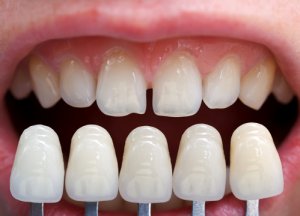
Application times vary between about 10 and 30 minutes per day, and a single treatment course is usually 1-2 weeks. Home whitening makes it easy to whiten your teeth without too much disruption to your day.
Here are some things to consider when choosing an at-home teeth whitening kit:
- Where is it made? Places like the UK, US and EU have stricter regulations governing the ingredients used in whitening gels than some other countries.
- LED whitening kits: Also known as ‘blue light whitening kits’, these come with an LED light that accelerates the bleaching agent.
- Fixed shape vs. mouldable trays: Some kits come with fixed shape mouth trays; others have thermoforming trays which must be placed in boiling water and then moulded into the shape of your teeth.
- How is the gel applied? Do you squeeze the gel into the mouth tray or paint the gel directly onto your teeth? Painting the gel directly onto your teeth can ensure better coverage and no leakage.
Our top picks for best teeth whitening kits available in the UK include:
You can read more about these teeth whitening kits on their individual review pages, or check out the table below for an overview of each product.
Our in-depth article on home teeth whitening kits has a lot more information on the types of kit and different brands available. Take a look if you want to compare a wider range of products.
Peroxide teeth whitening at the dentist
If you have the money to spend, it’s a good idea to visit your dentist to talk about cosmetic teeth whitening. Dentists are permitted to use hydrogen peroxide teeth whitening gel in the UK in much stronger concentrations than are permitted in over-the-counter products. Not only are their treatments effective; they also know how to carry them out safely and can help if you have any side effects.
There are two main types of professional teeth whitening treatment available at the dentist.
Laser or LED teeth whitening
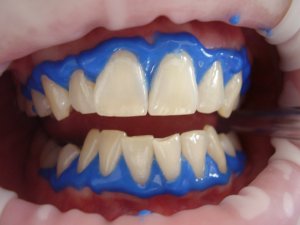
Often considered the best teeth whitening procedure in the UK for instant results, this method uses lasers or LEDs to speed up the bleaching effect of a concentrated gel applied to the teeth.
Your dentist will first apply a rubber seal to protect your gums, then will cover your teeth with a teeth bleaching gel – probably containing carbamide or hydrogen peroxide. The light shone on your teeth activates the chemicals in the gel, letting them get to work faster.
Some treatments involve three to four short sessions within a one-hour appointment. With others, the light is applied continuously.
After a single one-hour treatment, it’s possible to get teeth 7-8 shades brighter. However, some of this effect comes from the teeth being dehydrated, and it may fade quickly. With such an intense procedure, there is also greater potential for sensitivity during and following whitening treatment.
Depending on the condition of your teeth and gums, your dentist might recommend a scale and polish before getting your teeth whitening this way. If you have untreated cavities, these will need to be taken care of too.
Professional bleaching trays
A cheaper form of whitening offered by dentists uses custom trays to apply professional tooth whitening gel. This gel is usually stronger than the ones provided in DIY kits, so can produce better results.
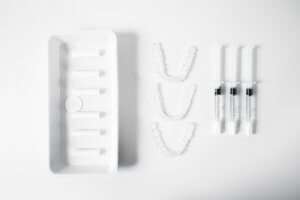
Your dentist will take impressions of your teeth, which are used to create custom mouth trays. Once these are ready, you complete your whitening treatment at home. Some professional whitening gels can be left on overnight – handy if you don’t have time to wear your trays during the day. You’ll need to ask your dentist about the options they offer, though.
Combined in-office and take-home whitening
Some teeth whitening services combine both of the treatments above. Enlighten teeth whitening is one well-known brand in the UK. You first get your custom trays and complete two weeks of teeth whitening treatment at home, then you return to your dentist for a final 40-minute in-office session.
Other home whitening solutions
Teeth whitening kits are the most effective way to white teeth at home, but there are other products you can use to brighten your smile without visiting a dentist. You can use these alone for gentle results, or use them to maintain the shade you’ve achieved from another kind of whitening.
Teeth whitening strips
Teeth-whitening strips are placed directly onto teeth, so some people find them cleaner and easier to use than gels and trays.
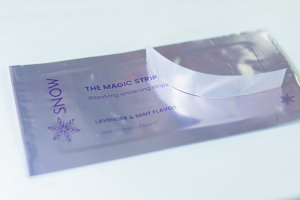
Many brands have the appeal of being peroxide-free, but the most effective ones still use peroxide.
Snow whitening strips are our top pick. Why? They are effective, they taste like refreshing lavender mint, and they dissolve directly on your teeth after 15 minutes.
Get the best price on this cost-effective option and see results in as few as seven days! And read our reviews of the best whitening strips in the UK for more info.
Teeth whitening pens
Whitening pens are really more like brushes; they comprise a small tube of gel that is applied directly to teeth via a built-in brush.
Pens usually contain peroxide whitening gel, although some peroxide-free brands are available. Users like them because they’re so convenient; you can carry them anywhere and use them whenever you have time.
Treatment takes from one to two weeks, with two to four applications per day lasting anywhere between 10 and 30 minutes, depending on the manufacturer. You probably won’t get bright white teeth this way, but you might get them a few shades whiter.
Whitening toothpaste and toothbrushes
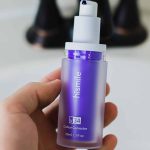
- The Hismile V34 Colour Corrector Serum is like purple shampoo for your teeth!
- It instantly neutralizes yellow tones, making teeth appear whiter and brighter
- Use it anytime for a whiter smile, with no harm to your enamel
Find out more in our full Hismile V34 review!
Perhaps you’ve seen a whitening version of your favourite toothpaste at the supermarket and thought “It can’t hurt to try”. Well, the thing is, it can hurt. Literally. Using an abrasive product like this can scratch away your tooth enamel and stains. When used over a long period (e.g. to brush teeth every day), many users experience increased sensitivity.
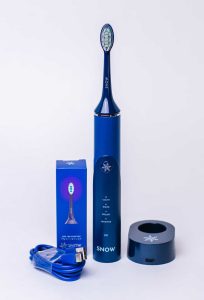
designed to whiten teeth
Whitening toothpaste only removes surface stains – rather than altering the colour of the teeth themselves – so if your teeth are naturally yellowish, using whitening toothpaste won’t change that. However, it can be used to prolong the effects of other whitening treatments.
It’s also the cheapest teeth whitening option around, which makes it a popular option for giving your smile a slight boost, although some brands like AP24 cost a lot more than you may be used to spending on toothpaste! We have written a separate guide to the best whitening toothpastes in the UK, so look if you’re interested in trying a new brand.
Certain toothbrushes (both manual and electric) are also designed specifically to whiten teeth, like the Snow LED toothbrush.
Ways to whiten teeth naturally
If you’re happy to trade quick results for a more natural approach, there are several natural teeth whitening techniques that some people swear by. While these won’t give you a dazzling white smile overnight, they can be effective at keeping teeth clean and white over the longer term.
- Coconut oil pulling (swishing a spoonful around your mouth for 10-15 minutes) is a traditional Indian technique for improving oral hygiene. You’ll need to rinse and brush as usual afterwards, but you should notice your teeth feel cleaner. Read our full guide to oil pulling for more details.
- A homemade whitening paste can be concocted using baking soda mixed with water or a very small amount of hydrogen peroxide. Get a runny consistency and then rub onto teeth for 30 seconds after brushing normally. However, baking soda is abrasive to teeth and this method should not be used frequently as it may cause sensitivity.
- Activated charcoal will turn your whole mouth black but once you wash it off you’ll find your teeth are sparkly clean. Available as a powder or toothpaste – read more about this below.
- Mashed strawberries can be applied directly to the teeth and left for a few minutes – a technique championed by model Tyra Banks. Be sure to rinse well afterwards because the acid in strawberries can damage enamel.
- Apple cider vinegar can be effective at removing dark stains on teeth. Rub it on your teeth for about a minute using your finger, then rinse with water and brush normally. Continue for at least a month to get good results. Remember that vinegar is acidic so do not attempt to leave it for long periods as this may cause your enamel to wear.
- Banana peels are often said to help with teeth whitening, but in fact, there is no scientific evidence that you can use banana peels to whiten teeth. The minerals in bananas are good for your dental health though. Similarly, turmeric is proposed by some to whiten teeth. Read more in our article that answers the question ‘does turmeric stain teeth?‘
Read more about the benefits of using a natural toothpaste and avoiding certain chemicals found in commercial brands.
Activated charcoal
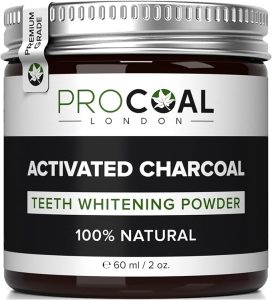
stain removing properties
Although it might seem counter-intuitive to put something black on your teeth to make them white, there is a good reason why charcoal powders and toothpaste have become so popular. You can read more about whitening with activated charcoal in our separate guide.
Procoal London makes this Activated Charcoal Teeth Whitening Powder which contains 100% coconut charcoal and is a good place to start if you want to give this teeth whitening method a try. You can apply it directly to your teeth with water or mix it with other ingredients to form a homemade toothpaste.
Teeth whitening powders do rely partly on abrasion to remove stains, so it’s best to use them with caution. A 60ml tub like this will last 2-3 months with daily use, and longer if you use it less often.
You can also get premade toothpaste, which you can read about in our guide to the best charcoal toothpaste.
Whitening sensitive teeth
Some patients report experiencing unbearable pain after whitening their teeth. If you have sensitive teeth or have experienced sensitivity in the past, it’s a good idea to speak to your dentist about your concerns. He or she may be able to apply desensitising agents to manage any pain you experience after whitening.
If you opt for a home whitening treatment, it might be a good idea to build up to the manufacturer’s recommended treatment time. For example, if they tell you to apply a gel for 15 minutes, try it for 5 minutes first and see how your teeth feel.
Products that don’t contain hydrogen peroxide may result in less sensitivity. Potassium nitrate and fluoride are effective pain relievers, while hydroxyapatite works to remineralise teeth and block sensitivity.
Tips for keeping your teeth white after treatment
Although there are no truly permanent teeth whitening solutions, there are measures you can take to ensure the effects last as long as possible after you’ve taken the time to get your teeth shining bright:
- Cut down on foods and drinks that cause stains in the first place (see the list below)
- Drink sugary or acidic drinks through a straw
- Rinse with water or chew sugar-free gum after consuming culprit foods and drinks
- Don’t smoke or vape
Finally, maintain good oral hygiene practices such as regular brushing and flossing. Visit your dentist twice a year for routine checkups, as well as booking a hygienist appointment for a scale and polish. This will help keep your mouth free from the plaque and bacteria that contribute to tooth decay and staining.
Tooth discolouration can be caused due to several lifestyle factors, which can change the efficacy of most tooth whitening procedures. For most people, teeth stains are caused by a lifetime of consuming stain-prone food and drinks like coffee and tea. In addition, other stain-causing habits like smoking and chewing tobacco are common culprits, as are certain prescription medications.
For others, it’s not a matter of bad habits but a combination of age and genetics. Teeth whitening treatments can help brighten your smile by several shades; however, going back to these stain-causing habits could affect how long your results last.
Dr. Brandon Murri
Causes of discoloured teeth
Have you thought about why you don’t have pearly white teeth in the first place? Actually, our teeth are not supposed to be brilliant white. Although the enamel that coats teeth is a blueish-white colour, its translucency means the yellow colour of the dentin below can show through.
Enamel thins as we get older, so it’s normal for teeth to darken or become yellower. You can read more about why teeth go yellow and what to do about it in our full article on the topic.
Medicines like tetracycline can also permanently discolour tooth enamel. Fluoride treatment as a child (inaccurate concentration or prolonged duration) can have the opposite effect — you can read more about white spots on teeth.
Foods that stain teeth
You may be wondering — does tea stain your teeth? And what about coffee?
For most people, the yellowing process is accelerated by the things we eat and drink, and other external factors. These include:
- Berries: Although the antioxidants in berries provide health benefits, their deep hue can cause staining (have you ever tried to get a raspberry stain out of a white shirt?).
- Sauces: Brightly coloured sauces like curries and tomato sauce can also contribute to staining, and the acidity of tomatoes makes them a double culprit. Opt for a lighter, creamy version to lessen the chances of tooth staining.
- Coffee: The dark colour and acidity of coffee both have a detrimental effect on your teeth.
- Tea: Black tea, in particular, can be more damaging than coffee. Even lighter herbal teas can erode enamel and cause staining.
- Wine: The tannins in red wine turn teeth a shade of grey. White wine, meanwhile, although not directly responsible for staining, can make existing stains darker.
- Sugary drinks: It’s well known that sugary soft drinks cause tooth decay, but because they do this by wearing away that bright tooth enamel, your teeth will appear darker over time, too.
- Smoking: The nicotine and tar in tobacco can stain teeth very quickly. Over the years, heavy smokers may find their teeth turning brown. Vaping also stains teeth — read more about it here.
- Braces: While braces help improve your smile by making your teeth straighter, at the same time they can leave them looking less-than-white.

You might say that the best way to whiten teeth is just to avoid the things that are likely to stain them. But we know it’s not always that simple, so while you sip that coffee, we’ll continue explaining how to undo the damage later.
One option is to minimise the staining effects of certain foods by eating them alongside foods that can prevent tooth staining, such as cheese, lettuce, celery, carrots, apples and cauliflower. These either help clean teeth through friction or work to neutralise the acid which damages enamel.
Of course, brushing your teeth correctly and flossing between them every day will help remove plaque and staining. Even with all these measures in place, there may still come a time when you want to get whiter teeth.
Is teeth whitening safe?
The safest way to whiten teeth is through an approved dentist. Dental professionals are trained to carry out various whitening procedures and also identify cases where whitening isn’t recommended.
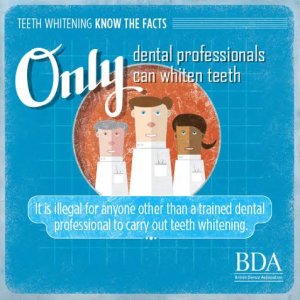
For example, people with gum disease, dental caries and dental crowns are advised not to whiten their teeth. For this reason, it’s always a good idea to have a dental checkup before doing any kind of teeth whitening procedure.
You may see whitening advertised by local beauty salons or mobile whitening services, but these are not trained dental professionals. In the UK, it’s illegal for the work to be carried out by anyone who isn’t a qualified dentist.
Home whitening kits are safe to use as long as you follow the instructions provided. Don’t be tempted to exceed the recommended gel dosage or usage time as this can cause damage to your teeth and gums.
If you’re concerned about the risks of whitening your teeth, it’s best to speak to your dentist first. You can also talk to people you know who have had similar treatment and ask about their experience.
Checking teeth whitening reviews
Whatever teeth whitening method you choose, you’ll be able to find reviews online which give you an idea of what it’s like and what kind of results you can expect.
Some brands – especially those offering home whitening solutions – rely on big marketing campaigns and social influencers to create hype around their brand. This doesn’t mean they are any less effective, but it’s worth searching out some impartial user reviews and checking the scientific studies behind the ingredients if you want to be sure you’re choosing the best teeth whitening treatment for you.
Also, remember that different people will have different experiences in terms of whitening results, sensitivity, ease of use, and so on. Still, checking reviews from others should help you decide which treatment to have.
Conclusion
There are many teeth whitening options to consider when you want a brighter smile. Visiting a dentist – either for in-office whitening or a take-home kit – will help ensure your treatment is conducted safely and effectively, with the supervision of a trained professional.
However, not everybody can afford professional whitening. In this case, there are many good teeth whitening treatments available over-the-counter and online. They may not be quite as effective as in-office treatments, but they can still whiten teeth by several shades over one to two weeks of treatment.
Teeth whitening products in the UK are heavily regulated, so there is little risk of them damaging your teeth if used as instructed.
Pens, strips and other products can be good for topping up and maintaining results, but may not give much of a whitening effect when used alone.
If you have any concerns about whitening your teeth or are unsure whether it’s safe for you, we recommend you speak to a dentist first.
Best Whitening Toothbrushes | ||
Snow LED Whitening Electric Toothbrush |
| |
Oral-B 3D White Action Power Toothbrush  |
| |
Colgate 360 Degree Advanced Optic White Toothbrush  |
| |
AquaSonic Black Series Ultra Whitening Toothbrush 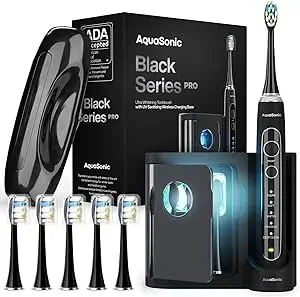 |
| |
FAQs
How do I find teeth whitening near me?
If a particular brand appeals to you, check the manufacturer’s website to find a dentist offering teeth whitening near you. Alternatively, ask your dentist if they offer teeth whitening. They may recommend a nearby dentist who does.
Does teeth whitening work?
Yes, the majority of teeth whitening products work to some degree. However, it’s important to differentiate between surface stain removal and enamel bleaching. You should also keep in mind that just because a whitening technique works, it doesn’t mean it is safe for your teeth in the long run.
How long does teeth whitening last?
Professional bleaching results can last between 1-3 years if you care for your teeth well afterwards. Teeth whitened with strips and toothpaste might start to yellow more quickly.
Where can I buy hydrogen peroxide teeth whitening gel in the UK?
Dental professionals are the only people licensed to administer hydrogen peroxide whitening gel with concentrations over 0.1% (i.e. anything effective). However, you can buy kits from overseas. A kit like Snow, for example, is made in the US with stronger hydrogen peroxide gel, and can be shipped to the UK for teeth whitening here.
What are the best products to whiten teeth quickly?
When you get in-office whitening, you’ll walk out with noticeably whiter teeth. If your budget doesn’t quite stretch, try a home whitening kit which should start to whiten your teeth in a few days.
NHS. Teeth Whitening. Consulted 19th December 2022.
Oral Health Foundation. Tooth Whitening. Consulted 19th December 2022.
British Dental Association. Teeth Whitening. Consulted 19th December 2022.
Dental Protection. Tooth Whitening. Consulted 19th December 2022.
National Center for Biotechnology Information. Tooth Whitening: What We Now Know. Consulted 19th December 2022.






